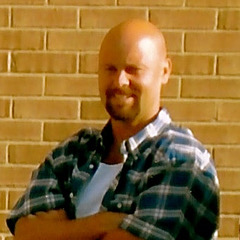
A Prison Diary from Arthur Longworth
A PRISON DIARY from ARTHUR LONGWORTH Share on facebook Share on twitter Share on linkedin Share on whatsapp Share on reddit This post is in



by Jermaine Archer, New York:
The world has since grown accustomed to not bringing liquids on planes, no-fly lists, intrusive TSA screenings, and local police patrolling neighborhoods with military-style weapons, to name just a few of the permanent changes resultant from 9/11. I, on other hand, found myself in a prison inside of prison, surrounded by individuals (in green and blue) who had seemingly given up all hope of retaining their dignity, not to mention their humanity and sanity. I witnessed the havoc that solitary confinement wreaks on the mind and the abuses that often accompany absolute authority — combined with no publicity and no oversight.
After assessing my predicament, sitting in prison for a crime I did not commit and now in the box for getting beat up by guards, I realized the only physical freedom I had left was choosing how I would respond. I understood that although I wasn’t guilty of the crime for which I was in prison, or assaulting the staff who put me in solitary, something was wrong with my navigational system because I consistently ended up in places I did not want to be. Ninety days later, released from the box, I pursued education and rehabilitation, taught myself French, and avoided situations that could lead to trouble — because by then, I knew firsthand that being right or innocent was no consolation and was highly overrated.
With good behavior, I eventually made my way back to Sing Sing, the place to be when doing prison time. Only in Sing Sing can an incarcerated person in search of true transformation and rehabilitation find fully functioning college programs (undergraduate and graduate level), professional teaching musicians, a full-production theater company, parenting and relationship specialists, non-violent conflict resolution workshops, youth-centered programs, committees dedicated to repaying societal debts while still inside, a facility newspaper, and a host of religious and cultural inmate organizations led by progressive-minded individuals that continually create new programs and opportunities. Fast forward 19 years. I’ve worked my way up to a Master’s Degree, learned to play the piano, participated in dramas (on stage, as opposed to in the prison yard) and helped create and coordinate too many educational, rehabilitative and therapeutic programs to name them all. I’ve been married to a beautiful woman for almost 13 years and with love, understanding, emotional support and parental guidance, I’ve helped her put two kids through college.
And then, to put a bow on it, the parole board gave me my walking papers! Yes, after 21 and a half years inside, counting the two plus years I served on Rikers, I’m finally going home. Suffice to say I’m looking forward to re-connecting with my family, having a social life with the new friends I’ve made along the way, and sharing the new and improved me with the world.
And now, in 2020, two more life-changing events have taken place, the first being Covid-19. Prisons are designed for maximum capacity so social distancing is not at all practical, although we all do our best. I’ve never seen so much hand-washing and spring cleaning before. Of course the virus made its way inside and, thankfully the damage was far less than expected. Fortunately I have remained healthy and stable, but unfortunately, I lost two friends inside to the virus. As for the second life-changing event of 2020, once again I was placed in the box (this time for only two days for reasons never made clear) and then I was kicked out of Sing Sing again, but this time I was sent to a medium-security prison in preparation of going home.
Here, I have less responsibility, which gives me more time to think about the world to which I’m returning. It’s a different world from the one I left behind. Shattered is my fantasy of taking my wife to France to kick off the next phase of our life (the borders are closed). Gone are my dreams of having dinner with friends at a restaurant I never knew existed (social distancing won’t allow it). Diminished are my plans to catch up with the musicians who taught me to play the piano at Carnegie Hall or take in a Broadway show with friends who taught me different elements of theater (Covid has shut down Carnegie and Broadway for at least the rest of the year). The world I grew up in is gone for good.
And just like the old world, the old me is dead and gone. I’m a changed man with the freedom to choose my reactions to changes. For instance, I’ll be able to use Zoom to get together and meet with lots of family and friends. I can utilize Face Time to travel across the border to chat with international friends. I’ve never used a smart phone before but in a few months, for the first time in decades, I’ll be able to call and text my family at all hours of the day — and they’ll be able to call and text me back! And when the newest technology confuses me, which it undoubtably will, I can simply use old-fashioned e-mails (which will still be new to me). So life out there may be different, but viewed through my lens, it’s going to beautiful. My incarceration has been book-ended by two of the most memorial events in modern history. To quote Heavy D (RIP), “It started with a pow and it ended with a Bang. Now it’s time for me to go out and live up to the reason I’m still standing, to prove the method obscured by the madness, to show that prison is like the New York that Old Blue Eyes sang about: “If I can make it there, I can make it anywhere.”
I’ve tempered my expectations: I probably won’t bring about world peace, but at least I can go out there and get my piece of the world. Stay tuned and see you soon.

A PRISON DIARY from ARTHUR LONGWORTH Share on facebook Share on twitter Share on linkedin Share on whatsapp Share on reddit This post is in

WHEN QUARANTINING IS A NICE WORD FOR SOLITARY Share on facebook Share on twitter Share on linkedin Share on whatsapp Share on reddit This post

BOOKENDS Share on facebook Share on twitter Share on linkedin Share on whatsapp Share on reddit This post is in collaboration with Prison Writers by

A PRISONER IMAGINES LIFE AS A PRISON NURSE Share on facebook Share on twitter Share on linkedin Share on whatsapp Share on reddit This post

Corona and the New Normal Share on facebook Share on twitter Share on linkedin Share on whatsapp Share on reddit This post is in collaboration

I NEARLY DIED FROM COVID-19 IN PRISON Share on facebook Share on twitter Share on linkedin Share on whatsapp Share on reddit This post is

I Haven’t Survived Prison For 20 Years Only To Die of Corona! Share on facebook Share on twitter Share on linkedin Share on whatsapp Share

HERE’S WHAT HAPPENS WHEN YOU QUARANTINE LOTS OF TESTOSTERONE IN ONE ROOM Share on facebook Share on twitter Share on linkedin Share on whatsapp Share
Life in Quarantine: Witnessing Global Pandemic is an initiative sponsored by the Poetic Media Lab and the Center for Spatial and Textual Analysis at Stanford University.
Center for Spatial and Textual Analysis (CESTA),
Stanford University
Address:
4th floor, Wallenberg Hall (bldg. 160)
450 Jane Stanford Way
Stanford, CA 94305
Stanford Mail Code: 2055